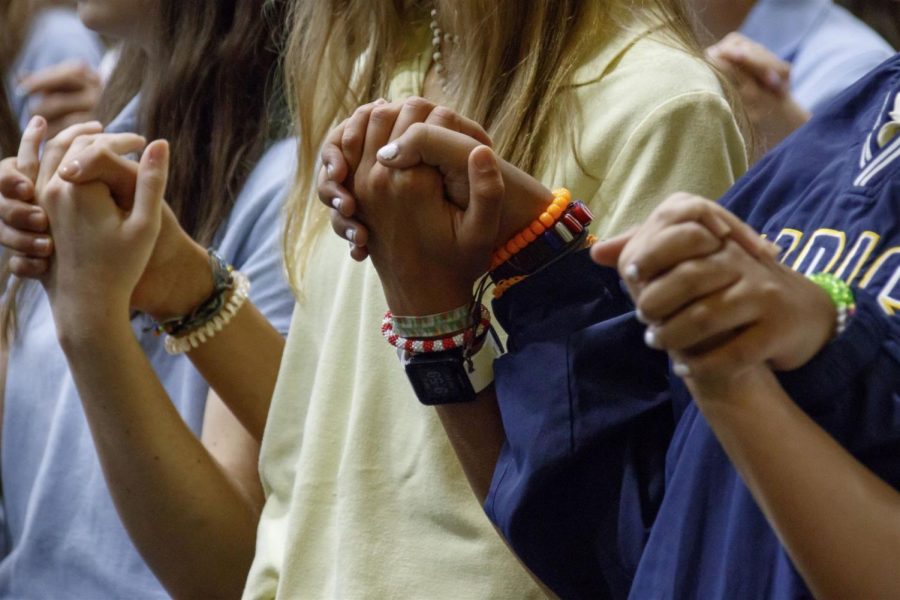In Solidarity
Photographer: Brian Collier
Marist students pray together at a (pre-COVID) Mass.
May 8, 2021
The past couple of months have been both frustrating and frightening for the Asian-American community. Asian-owned businesses have been vandalized, the elderly have been attacked, and the community as a whole has been hurt by dangerous rhetoric across the country.
On March 16, 2021, Robert Aaron Long killed eight people in three Atlanta-area spas. Six of his victims were Asian women. As a Filipino-American woman, the deaths of these people in my own community have been devastating and have forced me to reckon with the prejudiced stereotypes of Asians that have escalated since the start of the pandemic. Believing that China was the source of the coronavirus, many people have taken their anger and frustration out on people of Asian descent. This shows that the maintenance of xenophobia is not the “ardent love” of thy neighbor, but a lack thereof.
It is important to note that the recent events in our country are not a result of newfound sentiment. American history is no stranger to the failure of radical hospitality when it comes to Eastern immigrants. The physical implications of things such as the Chinese Exclusion Act of 1882 and orientalism (the representation of Asia through a colonialist point of view) are clear, but it is the social impact of this discrimination that paved the way for the ostracization of Asian-Americans.
As Marist students, how do we bring forth the love and hospitality that is needed in the world today? The attacks on the Atlanta victims hit close to home, and it serves as a call to action. How can we be radically hospitable and truly love our neighbors, especially those who are in pain right now?




